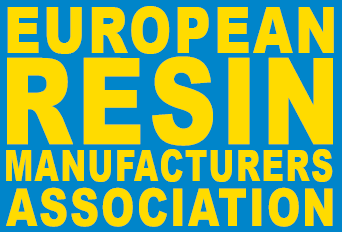R & D
First polyamide beads foam
(Source: Asahi Kasei)
Asahi Kasei develops the world’s first polyamide beads foam – Perfect for noise reduction and lightweight applications in the automotive industry.
With the ongoing disruptive megatrends in the automotive industry, the automotive OEMs and suppliers are facing a strong innovation pressure. New, innovative solutions are in high demand. Asahi Kasei’s newly developed polyamide beads foam offers unique possibilities for lightweight and noise reducing applications.
Preparation of degradable polyurethane with low surface energy for marine antifouling coating
Wednesday, 28 August 2019 (Source: Journal of Coatings Technology and Research)
Two polyurethanes were prepared through the reaction of 1,6-diisocyanatohexane (HDI) with two kinds of alcoholates. The first alcoholate was synthesized from alcoholized lactide (PLA) and dodecafluoroheptyl methacrylate (DFHMA) with the solid super acid (SO42−/ZrO) acting as the catalyst, and the other alcoholate was a mixture of PLA and DFHMA. The composition and structure of these two polyurethanes were investigated by infrared spectroscopy (FTIR) and differential scanning calorimetry (DSC). The mass loss, attachment of bacteria and algae, and the water contact angle were used to evaluate the degradable and antifouling performance of the two polyurethane coatings. The results showed that the maximum contact angle of PLIPFI reached 129°, its mass loss was higher than 10% in 65 days, and after 65 days, the mass loss appeared to be stable, and the antiadhesion performance of the polyurethanes coatings was also enhanced. All of these results indicated that the PU modified with a graft segment may be promising for obtaining antifouling materials that not only can resist the adhesion of microorganisms but also show self-renewal.
Machine-learning-assisted discovery of polymers with high thermal conductivity
Wednesday, 14 August 2019 (Source: npj Computational Materials)
The use of machine learning in computational molecular design has great potential to accelerate the discovery of innovative materials. However, its practical benefits still remain unproven in real-world applications, particularly in polymer science. We demonstrate the successful discovery of new polymers with high thermal conductivity, inspired by machine-learning-assisted polymer chemistry. This discovery was made by the interplay between machine intelligence trained on a substantially limited amount of polymeric properties data, expertise from laboratory synthesis and advanced technologies for thermophysical property measurements. Using a molecular design algorithm trained to recognize quantitative structure—property relationships with respect to thermal conductivity and other targeted polymeric properties, we identified thousands of promising hypothetical polymers. From these candidates, three were selected for monomer synthesis and polymerization because of their synthetic accessibility and their potential for ease of processing in further applications. The synthesized polymers reached thermal conductivities of 0.18–0.41 W/mK, which are comparable to those of state-of-the-art polymers in non-composite thermo-plastics.
Recycle, Redesign and Reuse through Renuva™
Wednesday, 31 July 2019
Dow introduces Renuva™, a circular economy program in collaboration with the value-chain
Renuva™ is a global program and an ambitious sustainability initiative from Dow, attempting to breathe new life into used products and close challenging resource loops, by adopting an integrated approach and involving the whole value chain. With Redesign, Recycle, Reuse and Re-Manufacture as its core values, a key objective of Renuva™ is to optimize the use and reuse of resources and ultimately minimize the volume of waste going into landfills or incineration.
For more information please see ERMA members area

